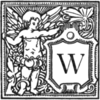INTRODUCTION
 RITING to his faithful friend Elia Diodati, Galileo speaks of the "New Sciences" which he had in mind to print as being "superior to everything else of mine hitherto published"; elsewhere he says "they contain results which I consider the most important of all my studies"; and this opinion which he expressed concerning his own work has been confirmed by posterity: the "New Sciences" are, indeed, the masterpiece of Galileo who at the time when he made the above remarks had spent upon them more than thirty laborious years.
RITING to his faithful friend Elia Diodati, Galileo speaks of the "New Sciences" which he had in mind to print as being "superior to everything else of mine hitherto published"; elsewhere he says "they contain results which I consider the most important of all my studies"; and this opinion which he expressed concerning his own work has been confirmed by posterity: the "New Sciences" are, indeed, the masterpiece of Galileo who at the time when he made the above remarks had spent upon them more than thirty laborious years.
One who wishes to trace the history of this remarkable work will find that the great philosopher laid its foundations during the eighteen best years of his life—those which he spent at Padua. As we learn from his last scholar, Vincenzio Viviani, the numerous results at which Galileo had arrived while in this city, awakened intense admiration in the friends who had witnessed various experiments by means of which he was accustomed to investigate interesting questions in physics. Fra Paolo Sarpi exclaimed: To give us the Science of Motion, God and Nature have joined hands and created the intellect of Galileo. And when the "New Sciences" came from the press one of his foremost pupils, Paolo Aproino, wrote that the volume contained much which he had "already heard from his own lips" during student days at Padua.
Limiting ourselves to only the more important documents which might be cited in support of our statement, it will suffice to mention the letter, written to Guidobaldo del Monte on the 29th of November, 1602, concerning the descent of heavy bodies

